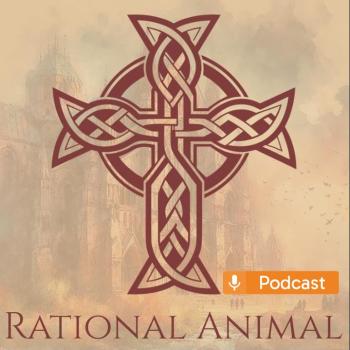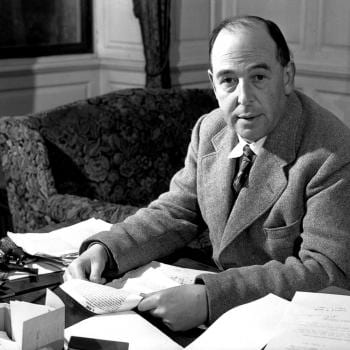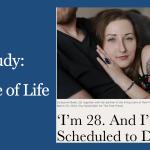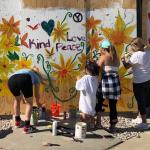Vatican City, Nov 4, 2017 / 12:00 am (CNA/EWTN News).- Last weekend, Pope Francis delivered a keynote speech to a major conference on the future of the European Union. Although the Pope is often characterized as a staunch progressive, his Oct. 28 speech was a reminder that his views on life, marriage, and sexuality go beyond the stereotypes with which he is often characterized. During the speech, the Pope spoke out against abortion, and said the Christian understanding of the family can serve as a model on which the European continent can base its identity as it faces a changing and uncertain future. Speaking to participants in the Oct. 27-29 conference “(Re)Thinking Europe: A Christian Contribution to the Future of the European Project,” Pope Francis stressed that the family, “as the primordial community,” is fundamental to understanding Europe's increasingly multicultural and multiethnic identity. In the family, “diversity is valued and at the same time brought into unity,” Francis said, explaining that the family “is the harmonious union of the differences between man and woman, which becomes stronger and more authentic to the extent that it is fruitful, capable of opening itself to life and to others.” Likewise, he said secular communities are also “alive” when they are capable “of openness, embracing the differences and gifts of each person while at the same time generating new life, development, labor, innovation and culture.” He also pointed to the low birth rate in Europe, lamenting the fact that there are so few children because “all too many were denied the right to be born.” These comments, which echo the critiques of European secularism often proffered by Benedict XVI, might surprise those who have, since the beginning of his pontificate, painted Francis as being untethered by Catholic doctrine. Yet while the Pope has often seemed to take a progressive approach to liturgy and has been outspoken on environmental issues, he has also been equally loud when defending Catholic doctrine on moral issues like abortion and homosexuality in the public square. Of course, there is still significant internal debate surrounding the interpretation of Chapter 8 of his 2015 apostolic exhortation Amoris Laetitia, which addresses the Church’s response to divorced and civilly remarried Catholics. In fact, this week the debate flared up again when news came out that Father Thomas Weinandy, OFM, Cap., a member of the Vatican’s International Theological Commission, resigned from his position as a consultant to the USCCB’s Committee on Doctrine after publishing a 5-page letter he had written to Pope Francis calling for a correction to the “chronic confusion” of his pontificate, which the priest said “fosters within the faithful a growing unease.” The letter, which charged that Pope Francis has downplayed the importance of doctrine, created confusion, and appointed questionable bishops, made waves throughout the Catholic world, especially given Fr. Weinandy's prominent role within the USCCB and the Pope's theological commission. But while Francis seems to invite debate on this and other points, he demonstrated last Saturday that he does so while calling for respect for the Catholic worldview in secular culture, especially regarding the family. Who am I to judge? It was early in his pontificate, on a return flight from World Youth Day in Rio de Janeiro in 2013, that Pope Francis famously responded to a question about homosexuality in the priesthood with “who am I to judge?” In some ways, the question became a lens through which his pontificate is often viewed, especially in the media. Since 2013, the “who-am-I-to-judge Pope” has spoken out frequently on the need to be more welcoming of people with homosexual orientation, and has insisted on the need to use language reflecting welcome, rather than a closed door. During his September 2015 visit to the United States, images of Pope Francis hugging a gay man circulated on the internet after he met with the man and his partner in Washington D.C. The man was a former student who had written to ask for a meeting, and the Pope accepted. And while Pope Francis' approach to homosexuality has been depicted by some as a deviation from the Church's doctrine, and hailed by others as a step in the right direction, his speech to E.U. leaders is a reminder that he aims to promote a worldview guided by Catholic doctrine, rather than contradicting it. A Catholic Worldview Looking back throughout Francis' pontificate, his speech on Saturday was the latest among dozens of times he has spoken on behalf of the role of the traditional family, the sacredness of human life, or the Church’s teaching on sexuality in the public square. Some of these occasions, just to name a few, are as follows: 1. In a 2014 audience with members of the German-born, international Schoenstatt movement marking the 100th anniversary of their founding, Pope Francis said the family, in the Christian understanding, was being attacked. “The family is being hit, the family is being struck and the family is being bastardized,” he said, noting that in the modern context, “you can call everything family, right?” He said contemporary society has “devalued” the sacrament of marriage by turning it into a social rite and removing the most essential element, which is union with God. “So many families are divided, so many marriages broken,” he said, adding that frequently, there is “such relativism in the concept of the sacrament of marriage.” 2. On the flight back from his trip to Georgia and Azerbaijan a year ago, in October 2016, the Pope was asked about the possibility of biological roots to homosexuality and transgender identities. Pope Francis said that those who struggle with sexuality and gender identity must be “accompanied as Jesus accompanies them,” and Jesus “surely doesn't tell them 'go away because you are homosexual,'” he said. But Francis also pointed to the “wickedness which today is done in the indoctrination of gender theory” that is now frequently being taught in schools, and which he said “is against the (nature of) things.” Pastoral accompaniment “is what Jesus would do today,” he said, but asked journalists to “please don't say: 'the Pope sanctifies transgenders.'...Because I see the covers of the papers.” Gender theory, he said, is “a moral problem. It's a human problem and it must be resolved...with the mercy of God, with the truth.” During the same trip, the Pope gave a lengthy, off-the-cuff speech to priests, seminarians and pastoral workers in which he said “the whole world is at war trying to destroy marriage,” not so much with weapons, “but with ideas...(there are) certain ideologies that destroy marriage. So we need to defend ourselves from ideological colonization.” 3. In his environmental encyclical Laudato Si, published in June 2015, Pope Francis condemned abortion, population control and transgenderism. Regarding gender, the Pope said that, like creation, “man too has a nature that he must respect and that he cannot manipulate at will. ” Further, he said that “valuing one’s own body in its femininity or masculinity is necessary if I am going to be able to recognize myself in an encounter with someone who is different. In this way we can joyfully accept the specific gifts of another man or woman, the work of God the Creator, and find mutual enrichment.” He also said that to protect nature is “incompatible with the justification of abortion,” and that it is “clearly inconsistent” to combat human trafficking or protect endangered species while being indifferent to the choice of many people “to destroy another human being deemed unwanted.” Francis also lamented that “instead of resolving the problems of the poor and thinking of how the world can be different, some can only propose a reduction in the birth rate.” “Demographic growth is fully compatible with an integral and shared development,” he said, adding that to blame a growing population for poverty and an unequal distribution of resources rather than the “extreme and selective consumerism on the part of some, is one way of refusing to face the issues.” 4. In February 2015, the Pope praised Slovakia, which had voted against a referendum to legalize same-sex “marriage,” voicing his appreciation “to the entire Slovak Church, encouraging everyone to continue their efforts in defense of the family, the vital cell of society.” Defying stereotypes The Pope has made more statements along the same lines over the past few years in general audiences, as well as in homilies, speeches and letters, advocating for public respect for the Church's position on life, marriage, and family. When the Pope spelled out his vision for the Christian contribution to the continent of Europe on Saturday, he made it clear that his moral and political vision is one based on the Church's longstanding teaching on the family. Pope Francis can be hard to pin down at times, and the resulting “gray area” often leads to stereotype – which is why he is so frequently the subject of caricature, rather than serious study. But caricatures of Francis inevitably miss the mark. On Saturday, Pope Francis proved this by again reminding Europe of its roots, and of the importance of the family and of Christianity to those roots, showing himself to be a leader who, instead of falling into stereotypes, defies them. Read more


















